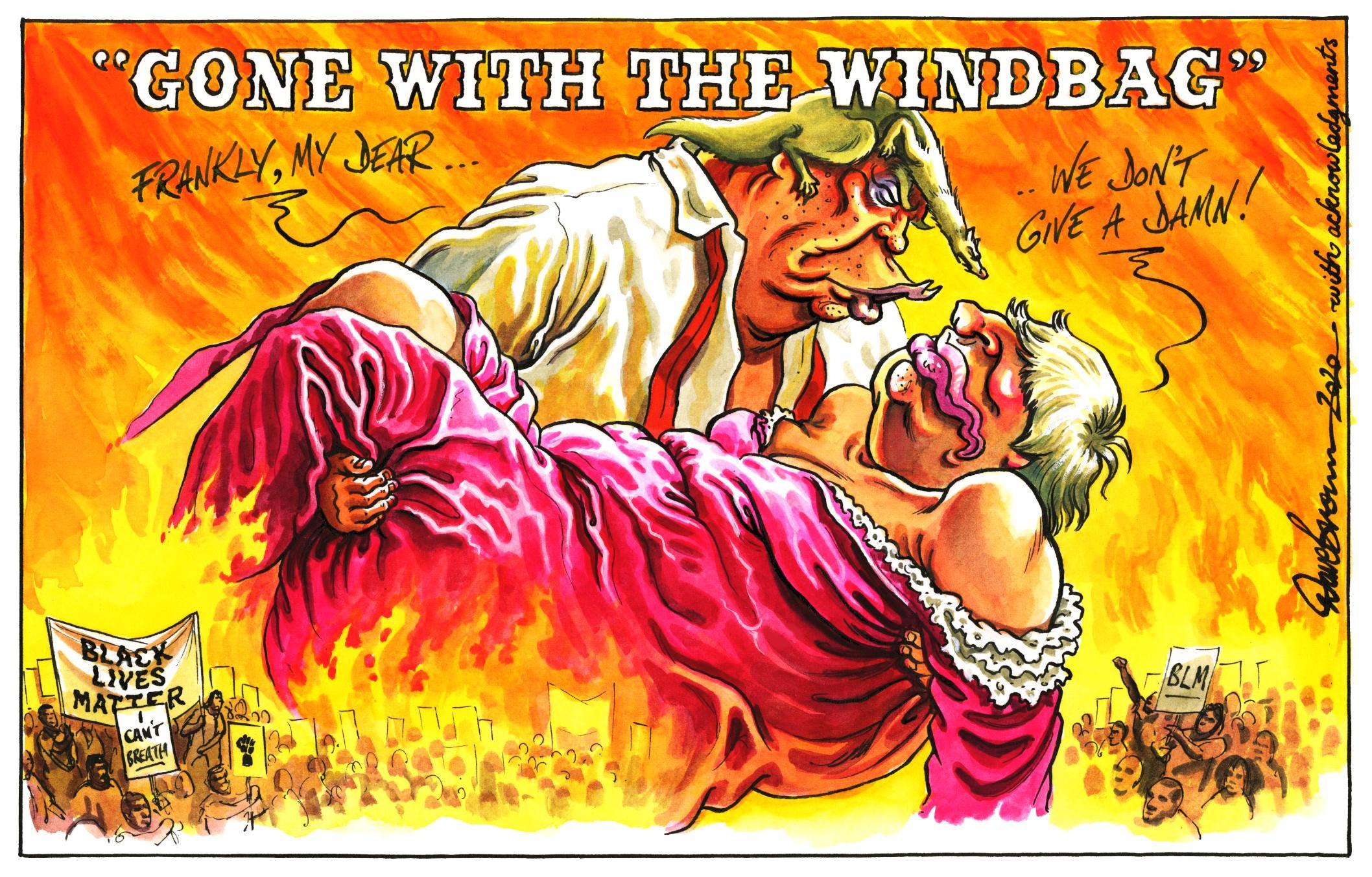Removing insensitive entertainment from streaming platforms isn’t the effective anti-racism tool it seems
Editorial: Few films or TV shows, past or present, need to be banned. Despite some of the faux outrage about censorship, none are being extirpated in some new battle in the culture wars of our times

Not so many years ago, Gordon Brown, then British prime minister, paid a visit to the White House. As is customary, Barack Obama, then US president, presented Mr Brown with a thoughtful gift – a box set of great American movies. Included was a DVD of the 1939 classic Gone with the Wind, alongside Citizen Kane, Psycho, Star Wars: Episode IV and others. The inclusion of Gone with the Wind raised no comment. Yesterday, HBO Max removed the title from its streaming service because the film’s portrait of the antebellum south contains “ethnic and racial prejudices” that “were wrong then and wrong today”.
In a parallel but less momentous sort of move, the BBC has also withdrawn its one-time hugely popular Little Britain series from its various platforms. Again, the reason is that the show is out of its time, in this case with sketches poking fun too uncomfortably.
In other words, times change, and, in truth, there is nothing so strange or censorious about these and other similar moves coming as they do on a wave of unrest over racial injustice.
In the first place – just as there is no compulsion on anyone to watch anything – broadcasters, streaming services, DVD manufacturers and digital hosts are under no obligation to make any particular material available.
If the BBC and HBO wish to set an example and respond to the anger and sense of historic injustice voiced by the Black Lives Matter movement, then they are free (and right) to do so. Nothing is being “banned”. In a free society served by the internet, it is not difficult for anyone to lay their hands on anything they want to access. Any casual visitor to a British charity shop will readily find DVDs of Little Britain that can be acquired for small change.
Moreover, this is hardly the first time broadcasters have found themselves embarrassed by once much-loved and popular series. The Black and White Minstrel show was a BBC light entertainment staple until as late as 1978, but seldom seen or remembered today. It is also many years, for example, since Alf Garnett was heard ranting about immigration. Although a satirical figure created to be mocked, the racist epithets are far more offensive today than his swearing was back in the 1960s. Similarly, It Ain’t Half Hot Mum, a 1970s comedy set at the end of the British Raj, hasn’t been seen since. The very existence of Mind Your Language, Love Thy Neighbour and The Benny Hill Show, even as historical facts, makes ITV bosses wince. Like Little Britain, they are not available on the official streaming services.
The fact is that racism has been such an integral part of so many cultures for so long that it often infected their output, without anyone at the time especially noticing, let alone rejecting it. Anything from children’s literature – Roald Dahl, Tintin – to the design of a jam jar, reflected the racially scarred societies they sprang from.
Some argue that these are significant historic or cultural phenomena in their own right. Although they could never be made today, they cannot be un-made. Examples would be Triumph of the Will (1935), a paradigm of Nazi propaganda by Leni Riefenstahl; or The Birth of a Nation (1915), a technically significant production, which romanticises the Ku Klux Klan; or the idealised version of Soviet history in films such as Battleship Potemkin (1925) by the director Sergei Eisenstein. All of these are easily found on YouTube and can be watched on a smartphone.
Few films or TV shows, past or present, need to be banned and, despite some of the faux outrage about censorship, none are being extirpated in some new battle in the culture wars of our times. Even in North Korea the authorities find it impossible to prevent their citizens from watching decadent South Korean soaps or listening to K-pop. Those who really want to see Matt Lucas in a fat suit or Vivien Leigh as Scarlett O’Hara can still do so, even if no one else gives a damn about them.
Join our commenting forum
Join thought-provoking conversations, follow other Independent readers and see their replies
Comments
Bookmark popover
Removed from bookmarks